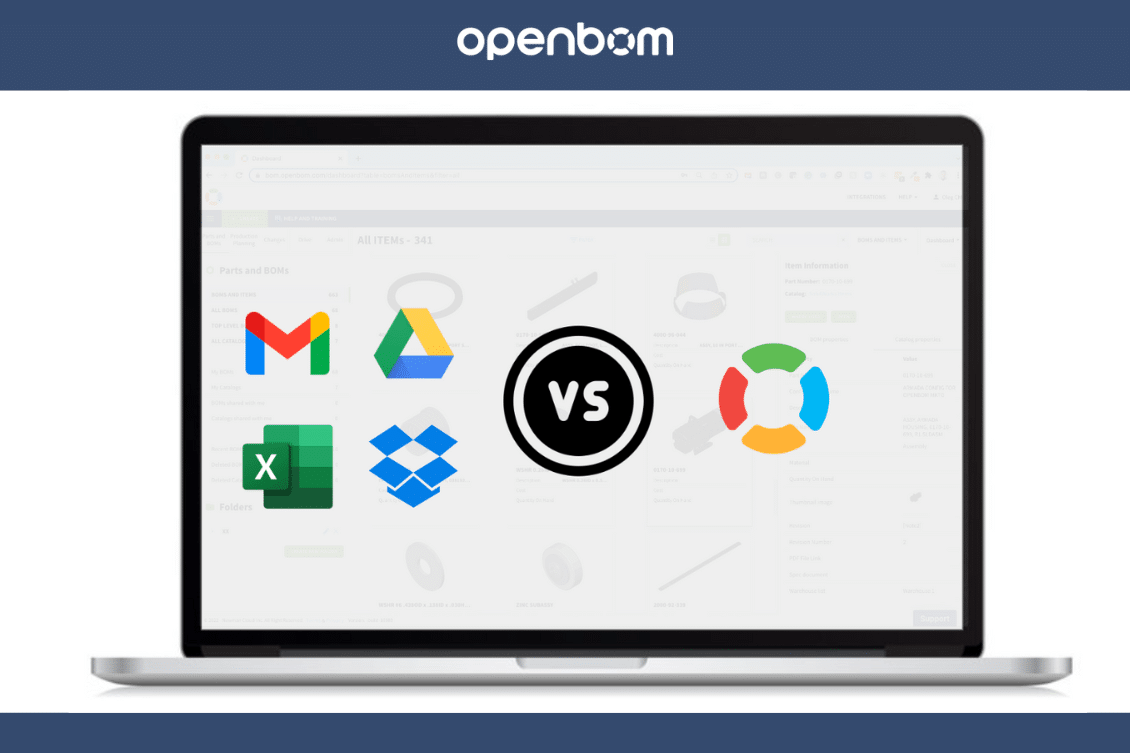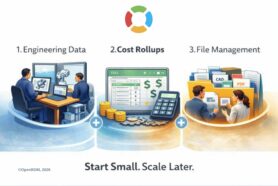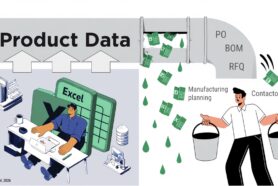
In today’s fast-paced world, manufacturers strive to get their products to market as quickly and efficiently as possible. At the same time, products are getting more complex, and global disruptions remain, forcing manufacturers to juggle multiple suppliers at the same time. To help cope with these concerns, manufacturers are forced to improve the way they share product and design data with their contract manufacturer (CM) or supplier.
The request for quotation (RFQ) process can be a lengthy task that includes multiple suppliers that takes valuable time from your team. In today’s blog post, I will show you how you can streamline the RFQ process with OpenBOM by gathering, distributing, structuring, and analyzing all relevant product data in one centralized location. Having this single source of truth will help you to evaluate suppliers and make good business decisions going forward.
Traditional Way Of Sharing Data
The way you share data with your supplier will affect the speed and accuracy of the quote your supplier is able to provide. If your product data is messy, not up-to-date, and difficult to find then you can expect back and forth and an inaccurate quote. Therefore, it’s in your best interest to optimize the way you share your product data.
Traditionally, manufacturers have dumped data onto their suppliers. Nothing was really connected. You have the structure of the product broken down into parts and items that are shown in the bill of materials (BOM). However, there is nothing connected to this BOM. You are forced to go through files to find the specifications, drawings, quality, and other documents that support the parts shown on the BOM.
This puts importance on how you name the files in the folders. If a part number is updated but you don’t update the file then don’t expect your supplier to find it quickly.
Without a better way, the manufacturer is left sending as much data as they can with little to no organization. This can work if there are 5 parts to the product. But this is not fun scrolling through hundreds of files.
Here is an example of what is usually sent.
Problems With The Traditional Way
Sending files in folders has been the norm. Spreadsheets have a familiar look and suppliers use them. Unfortunately, the risks of using spreadsheets and using files and folders to send product data outweigh the familiar look. Here are some problems you might incur sharing data the traditional way.
- Creates data silos
- Different team members work on different files
- No automatic sharing
- No integration with the CAD system
- Lengthy process
- Unable to manage historical data appropriately
- Not able to quickly deal with rolling changes
The main issue is that your team and your supplier will be working on different data. Having data silos without automatic sharing will leave your team vulnerable to the following:
- Purchasing incorrect parts
- Unable to plan production
- Not having transparent costs
- Using outdated work instructions or quality requirements
While this method is still widely used, manufacturers are looking for a way for their teams to focus on value-added tasks rather than constantly creating and managing their product, design, manufacturing, and product data.
How Can OpenBOM Help?
At OpenBOM, we believe that design, product, manufacturing, and product data should be all connected and available to those who need it. Our vision is to destroy data silos by creating a single and shareable source of truth for your team, suppliers, and contractors.
Creating Data
Creating data is a time-sink, especially when you constantly need to generate derivate files (STP, PDF, etc…). Engineers are often forced away from their important tasks in order to spend precious hours on mundane tasks.
OpenBOM streamlines the way you create data. Use our CAD integrations and take advantage of our One-Click BOM function. Also, you can easily import from spreadsheets or take advantage of our API.
Don’t have time to create STP files? Don’t worry. OpenBOM supports the generation of derivative files.
Sharing Data
The traditional way of sharing data creates data silos. After you send product data to your supplier, you need to update it after any change, no matter how small. Changing a screw? You need to tell your supplier. While this sounds normal, it takes time and you’re assuming your supplier receives and implements each change. This lack of transparency has a lot of consequences.
OpenBOM has modernized the way you share product data with your suppliers. It’s simple, sharing data with suppliers (and everyone else) is done automatically. No emails and no more assumptions and concerns that your supplier will see it.
Concerned about what data your supplier will see? You can also set certain permissions so they only see what you allow them to see.
How Does This Help The RFQ Process?
Today’s supply chain is complex. With global disruptions, you are forced to have a diverse supply chain. Keeping track of all this data is complicated in spreadsheets. It takes time to find what you need and slows down your decision-making abilities.
OpenBOM brings transparency to your supply chain. Having instant access to all your parts, quotes, suppliers, revision, POs, inventories, and more enables you to make informed decisions quickly.
Using OpenBOM to simplify your RFQ process will not just make your life easier but improve the life of your supplier. With the data being inter-connected to the BOM, you can expect the following:
- Faster quote time
- Less time to approve POs
- Less back and forth with emails
- Unexpected changes from anyone.
What can you do today?
If you are looking to gain a competitive advantage then look to use OpenBOM. OpenBOM will keep all of your product data together and manage your revisions and create an ECR/ECO process. Your solution is a centralized platform that connects your team, contractors, and suppliers.
OpenBOM is a cloud-based PDM & PLM platform to manage your engineering and manufacturing data. Companies from startups to Fortune 500s use OpenBOM to create a centralized database to bring in, store, and manage their manufacturing data. With this infrastructure, users also use OpenBOM to streamline both their change management and PO processes.
If you need to improve the way you manage your data and processes, share data instantly, or to collaborate with contractors and suppliers. contact us today for a free consultation.
Regards,
Jared Haw
Join our newsletter to receive a weekly portion of news, articles, and tips about OpenBOM and our community.










